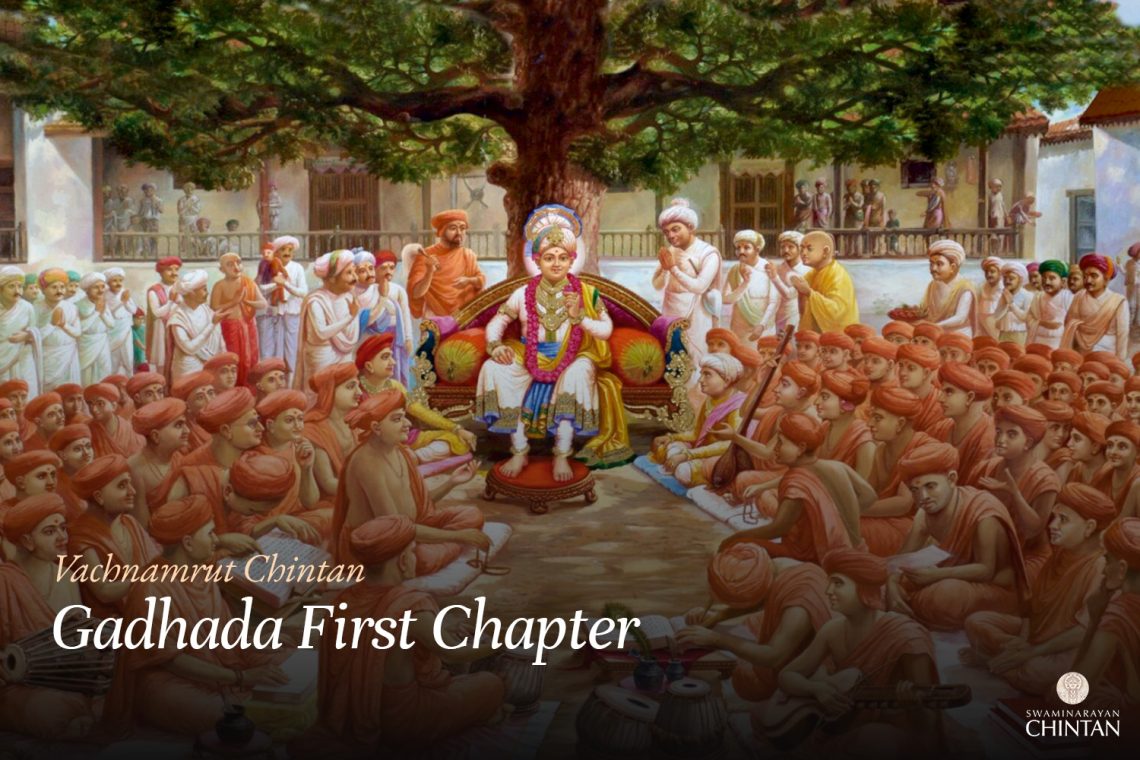Central Insights:
Why, despite God being the source of endless happiness, are we so easily distracted by temporary worldly things? And even after discovering and connecting with God, who represents pure bliss, why do some of His followers still feel pain and sadness?
Key Points:
- The soul does not concentrate its mind on the Murti of God, and is attracted towards worthless perishable worldly objects.
- If one does not develop non-attachment towards worldly matters and is drifted away from God, then they are sure to be carried away by the flow of Maya even if they are as powerful as Shiv, Brahma, etc.
- If one firmly acts according to the command of God, they will enjoy bliss comparable to the bliss of God Himself. The more they disobey the will of God the more miserable they become.
Explanation
Bhagwan has designed the world in such a way that attachment to Mayik (worldly) objects—whether to family, wealth, or status—develops effortlessly. The jeev (soul) is incapable of existing without forming attachments. Even within a single lifetime, the objects of its affection continuously change. As a child,
the soul clings to its mother with unwavering love. Later, it becomes attached to friends, then to a spouse, then to children, then to wealth and possessions, and eventually to grandchildren and lineage. The
soul shifts its affections from one thing to another, yet every time, it remains unfulfilled.
The very fact that the soul repeatedly redirects its love suggests that it has never truly found the satisfaction it seeks. If it had, it would have remained content in one place. But that has not been the case. The soul’s inner cravings remain unsatisfied, and instead of receiving true fulfilment, it often faces loss, pain, or disillusionment. Even when it seems to gain something, it ultimately must let go.
Drawing a parallel, consider a calf that mistakenly approaches a group of bulls seeking its mother’s milk. The innocent calf, instead of nourishment, receives kicks and injuries, preventing it from returning to its true mother for comfort. Similarly, the soul, in its quest for contentment, often finds itself hurt due to misplaced affections. Yet, despite these repeated setbacks, the soul doesn’t discern and continues its blind pursuits. On the other hand, genuine love for God is never in vain. ‘न हि कल्याणकृत्कश्चित्दुर्गतिं तात गच्छति ।’ (Gita 6.40) implies that those who worship God are never disgraced. This assurance has been given by experienced poets and devotees. The gesture as simple as ‘पत्रं पुष्पं फलं तोयं…’ (offering a leaf, flower, fruit, or water) is accepted by Him. However, He is so generous that ‘Even if one offers something minuscule with love…’, God appreciates and returns it manifold. To not love such a God is perplexing. Still, the soul often fails to seek God wholeheartedly. This hesitance is primarily attributed to God’s illusionary energy, Maya, which clouds the soul’s judgment.
In the previous discussion, it was mentioned that by obeying the commands of God, one attains happiness and experiences divine joy. However, when these commands are disregarded, discord arises. At a cursory glance, this doesn’t seem evident in society. Those who disregard these commands or engage in unrighteousness and injustice appear happier and history seems to suggest the same. Ravana amassed his wealth through unrighteous means. King Nanda might have accumulated his fortune through unjust ways. Hiranyakashipu might have risen to power with the aid of unrighteousness. So, would the teachings of the Vachanamrut be considered incorrect? No, absolutely not.
Human beings acquire wealth, power, and pleasure as determined by their destiny. They might increase these by disregarding Gods commands or through unrighteous and unjust means, but they cannot increase happiness or joy. Happiness and wealth are distinct entities. Those who follow the divine commands experience an increase in happiness and joy, whereas those who don’t, experience discord and unrest. This is unequivocal. Our misconception arises when we equate prosperity, power, and grandeur with happiness. In reality, happiness is distinct from these and we get misguided by perceiving them as one. Thus, confusion arises in these words. The truth is clear and remains so.
Glossary
| Happiness vs. Wealth – Differentiation Between Joy and Material Gain |
| Kalpana – Misguided Imagination or Pursuit |
| Maya – Illusion The material energy that entangles the Jeev in worldly existence and distracts from Bhagwan. |
| Patram Pushpam Phalam Toyam -Offering Made to God with Love |
| Kalyan – Liberation or deliverance from the cycle of birth and death |

